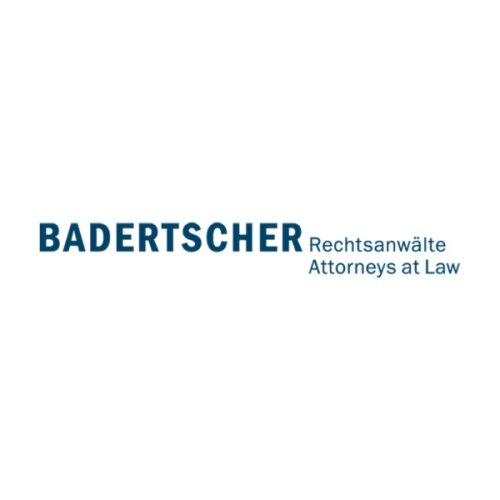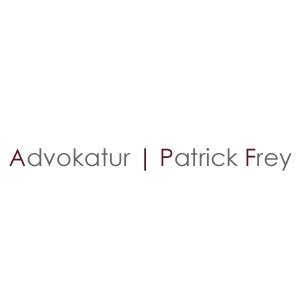Best Creditor Lawyers in Switzerland
Share your needs with us, get contacted by law firms.
Free. Takes 2 min.
Or refine your search by selecting a city:
List of the best lawyers in Switzerland
About Creditor Law in Switzerland
Creditor law in Switzerland encompasses the rules and regulations governing the rights and obligations of creditors in the process of debt recovery. It includes the mechanisms through which creditors can enforce their rights against debtors, ensuring the latter fulfills their financial obligations. Swiss creditor law is designed with a dual purpose: safeguarding the rights of creditors while also protecting debtors from unjust treatment. Consequently, the legal framework balances the enforcement of claims and debtors' rights, emphasizing fairness and legal compliance.
Why You May Need a Lawyer
Legal matters related to creditors often involve complex processes and terminologies, which can be challenging to navigate without professional help. Typical scenarios where legal assistance might be needed include:
- Recovering overdue payments from debtors who are resistant or unable to pay.
- Negotiating payment plans or settlements in cases of financial difficulty.
- Understanding and navigating bankruptcy proceedings if a debtor files for insolvency.
- Ensuring compliance with Swiss laws when pursuing cross-border debt recovery.
- Drafting clear and enforceable credit and loan agreements to mitigate future disputes.
A lawyer specialized in creditor law can provide strategic advice, represent your interests in court, and help ensure that your rights as a creditor are protected.
Local Laws Overview
Swiss creditor laws are primarily governed by the Swiss Debt Enforcement and Bankruptcy Law (DEBL), which provides the legal framework for both individual and corporate debt recovery. Key aspects include:
- Debt Enforcement Proceedings: Creditors can initiate proceedings to claim debts through a standardized legal process.
- Bankruptcy Process: In case of insolvency, structured bankruptcy procedures provide a fair distribution of the debtor's remaining assets among creditors.
- Protection from Unfair Practices: Swiss law protects debtors from harassment and unjust creditor practices, ensuring ethical standards in debt collection.
- International Debt Recovery: Cross-border debt collection is facilitated through international treaties and regulations, ensuring creditors can pursue claims beyond Swiss borders.
Frequently Asked Questions
What is the first step in debt recovery?
The initial step typically involves sending a formal demand letter to the debtor, outlining the outstanding amount and requesting payment within a specified timeframe.
Can I include interest in the debt amount?
Yes, creditors can usually claim interest on overdue payments, provided the terms are outlined in the original agreement and comply with Swiss legal interest rate limits.
What if the debtor declares bankruptcy?
If a debtor declares bankruptcy, the debt recovery process follows a structured legal procedure managed by a bankruptcy administrator to ensure fair asset distribution.
How long does the debt enforcement process take?
The duration can vary significantly depending on the complexity of the case, the cooperation of the debtor, and whether any objections are raised.
Can I pursue debt recovery from a debtor residing abroad?
Yes, international debt recovery is possible, often necessitating collaboration with local legal professionals in the debtor's country and adherence to international treaties.
Is there a statute of limitations for debt claims in Switzerland?
Yes, the typical statute of limitations for contractual debt is ten years, though shorter periods may apply to certain claims.
What legal recourse is available if a debtor contests the claim?
If a debtor disputes a claim, the matter may be escalated to formal court proceedings where evidence and arguments are assessed by a judge.
Are payment plan negotiations legally binding?
Yes, once agreed and documented, payment plans can be binding and enforceable, providing clear terms and conditions for both parties.
Can I recover debt if the debtor has no assets?
Debt recovery may still proceed, but collecting payments will be challenging if the debtor lacks assets or income. Legal strategies can be explored, depending on the specific situation.
What fees are involved in debt enforcement proceedings?
Fees can include court costs, administrative fees, and legal representation expenses. These may vary depending on the jurisdiction and complexity of the case.
Additional Resources
Several resources and organizations can assist with creditor issues, including:
- Swiss Bar Association: Offers a directory of legal professionals specializing in creditor law.
- Federal Office of Justice: Provides information on Swiss legal procedures and debt enforcement.
- Debt Collection and Bankruptcy Offices: Local offices can offer guidance on the enforcement process and support creditor claims.
- International Organizations: Institutions like the International Association of Legal Collection Agencies offer resources for cross-border debt recovery.
Next Steps
If you're seeking legal assistance with creditor-related issues, consider the following steps:
- Identify and document all relevant details concerning your claim, including contracts, communication, and payment history.
- Consult a legal professional specializing in creditor law to evaluate your case and discuss potential strategies.
- Consider mediation or negotiation as an initial non-litigious approach to resolving the issue amicably with the debtor.
- If necessary, initiate formal legal proceedings with the guidance and representation of your lawyer.
- Stay informed of your rights and obligations throughout the process to ensure compliance with Swiss laws.
Taking these steps can help ensure a structured, legally compliant approach to resolving creditor disputes and recovering outstanding debts.
Lawzana helps you find the best lawyers and law firms in Switzerland through a curated and pre-screened list of qualified legal professionals. Our platform offers rankings and detailed profiles of attorneys and law firms, allowing you to compare based on practice areas, including Creditor, experience, and client feedback.
Each profile includes a description of the firm's areas of practice, client reviews, team members and partners, year of establishment, spoken languages, office locations, contact information, social media presence, and any published articles or resources. Most firms on our platform speak English and are experienced in both local and international legal matters.
Get a quote from top-rated law firms in Switzerland — quickly, securely, and without unnecessary hassle.
Disclaimer:
The information provided on this page is for general informational purposes only and does not constitute legal advice. While we strive to ensure the accuracy and relevance of the content, legal information may change over time, and interpretations of the law can vary. You should always consult with a qualified legal professional for advice specific to your situation.
We disclaim all liability for actions taken or not taken based on the content of this page. If you believe any information is incorrect or outdated, please contact us, and we will review and update it where appropriate.
Browse creditor law firms by city in Switzerland
Refine your search by selecting a city.
















